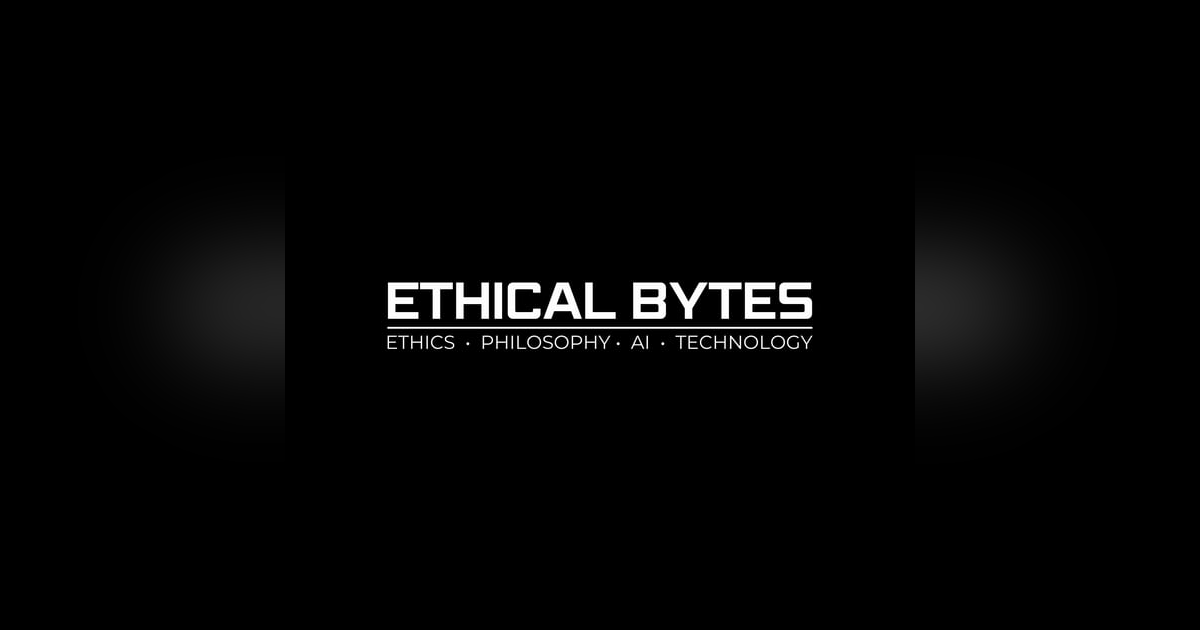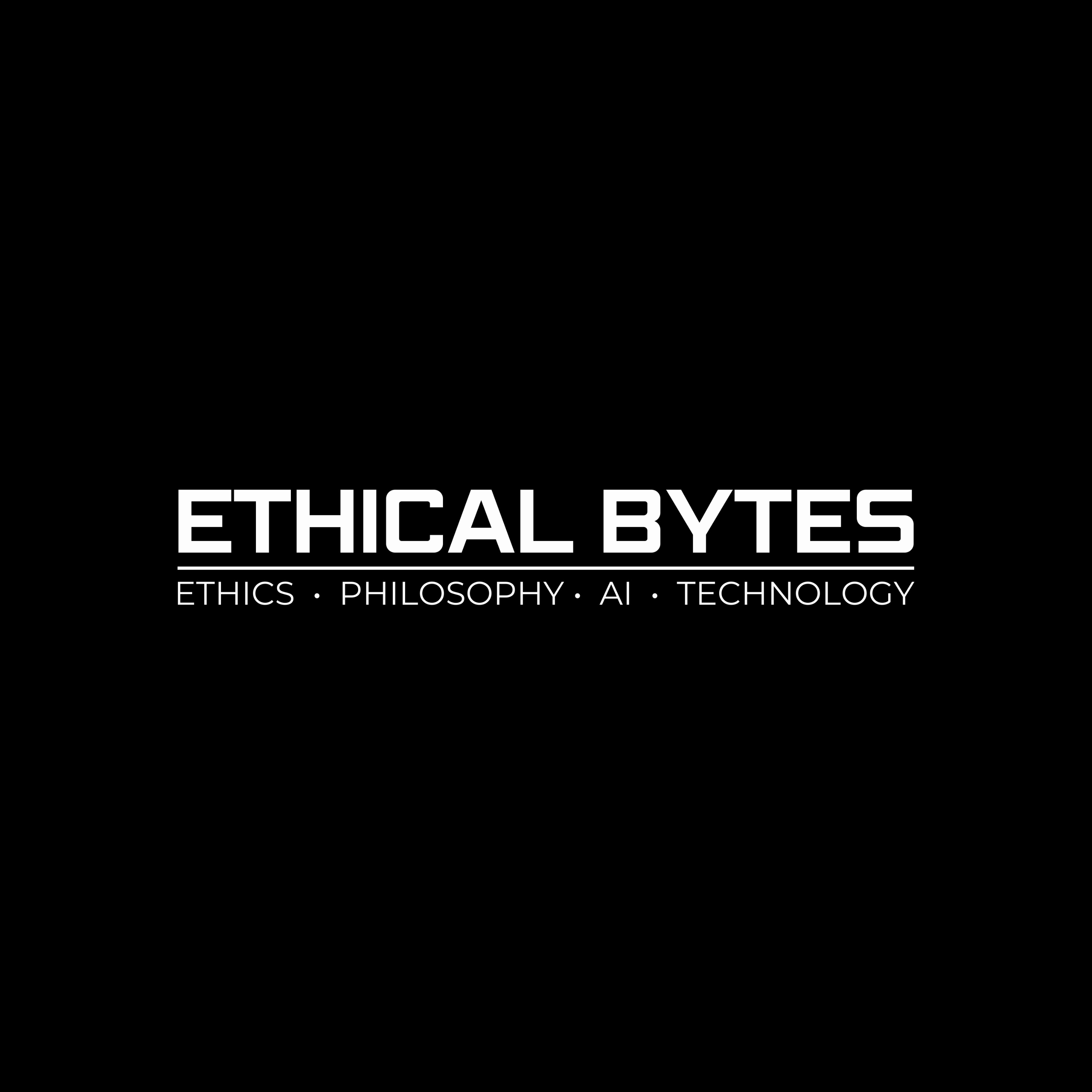Becoming an AI Ethicist, Part II: Inside the Life of an AI Ethicist


What does it take to shape the future of AI while navigating the ethical dilemmas that come with it? Our host, Carter Considine, tackles this question with the second half of our two-part series on becoming an AI ethicist!
Becoming an AI ethicist offers a wide array of career paths, each with distinct challenges and rewards. In the corporate world, AI ethicists—often known as Responsible AI Practitioners—work in large teams, focusing on ethics reviews and guiding AI product development within structured environments. This role demands strong communication, problem-solving, and persuasion skills to navigate complex business dynamics.
In academia, AI ethicists engage in deep research and critical thinking. Doing so helps them contribute to theoretical frameworks and practical ethics, all while requiring self-motivation and a passion for learning. The autonomy you’d enjoy in this environment allows for intellectual exploration, but it also requires discipline and intrinsic motivation to push forward valuable research.
Startups, on the other hand, provide a fast-paced and flexible environment where AI ethicists have the chance to make a direct impact on a company’s success. This requires creativity, adaptability, and the ability to thrive in a chaotic, ever-changing environment!
And if your passion lies in policy and advocacy, becoming an AI ethicist can help you shape systemic change by drafting regulations and influencing public discourse on AI. These roles often involve collaboration with nonprofits, think tanks, and governmental organizations. These are responsibilities that demand a mix of technical expertise, diplomacy, and analytical thinking.
Finally, roles in communication and outreach, including journalism and public advocacy, focus on educating broader audiences about AI’s societal impacts. These positions require strong storytelling skills, curiosity, and the ability to simplify complex topics for the public.
No matter the setting, AI ethicists share a common mission: to ensure AI is developed and used responsibly, with the opportunity to make a meaningful difference in the rapidly evolving field of artificial intelligence!
Key Topics:
- Corporate Roles for AI Ethicists (00:00)
- Academic Roles for AI Ethicists (02:40)
- Startup Roles for AI Ethicists (04:36)
- Policy and Advocacy Roles for AI Ethicists (06:09)
- Communication and Outreach Roles for AI Ethicists (07:25)
- Global Organizations and Interdisciplinary Roles (08:43)
- Wrap Up (09:36)
More info, transcripts, and references can be found at ethical.fm
Choosing to become an AI ethicist is a significant career decision, but understanding what the role entails day-to-day is as useful as considering whether the field aligns with your values and aspirations. This podcast dives into the practical realities of working as an AI ethicist across different environments, from corporate roles to academia, startups, and beyond. We’ll also explore the character traits that will help you thrive in each environment. By exploring the unique challenges and opportunities in these settings, you can better understand what life might look like as an AI ethicist and whether it suits your career aspirations.
The Corporate World
In corporations, AI ethicists often serve as "Responsible AI Practitioners." Corporations are typically quite large, which means you’ll be working across several teams. Responsible AI Practitioners collaborate in cross-functional teams to act as the expert on ethical considerations of AI products and services. Your responsibilities may include conducting ethics reviews, developing guidelines for product teams, and educating other team members on responsible AI practices. The culture in large corporations is often formal, requiring employees to adhere to dress codes and work within structured, and, sometimes, long hours. It’s important in corporations to be punctual and adhere to schedules, as tasks are typically embedded within larger projects involving multiple departments. You’ll also likely fill your day with many Zoom meetings.
Corporate environments favor pragmatism, problem-solving, and persuasiveness. AI ethicists in this setting must rally team members to support ethical causes and often serve as the neutral adjudicator balancing stakeholder interests. The sheer scale of large businesses can make it challenging for ethicists to see the immediate impact of their work. With so many departments and workers contributing to various aspects of the company, it is easy to feel that one’s efforts are diluted or lost in the grander scheme. Navigating this environment requires strong communication skills, resilience, and the ability to advocate for ethical practices amidst competing business priorities.
Research in Academia
In academia, AI ethicists engage in deep, critical thinking to perform research that explores the theoretical and practical dimensions of AI ethics. The daily life of an academic typically involves a significant amount of autonomy, which requires you to be very self-motivated. Much of your time will be spent reading academic papers, books, white papers, and the latest research to stay informed about developments in the field. Writing is another substantial component of their work, as you will produce research papers, grant proposals, and essays for publication. Academia also involves quite a bit of networking and collaboration with other scholars.
Essential traits for an academic include natural curiosity, detail-orientedness, critical thinking, and a love for deep research and going down rabbit holes. The academic environment demands a disciplined routine, with scholars needing to divide their hours between teaching, mentoring students, attending conferences, and conducting independent research. Academics in AI ethics are talented at taking complex, abstract questions and applying them to real-life scenarios. You will also collaborate with peers across disciplines to integrate multiple perspectives into your work. Despite the intellectual rewards, the solitary nature of some tasks, such as writing and developing theoretical frameworks, means you must find intrinsic motivation to push forward your research and make meaningful contributions to the field; you must believe that you have something important to contribute to the field.
Startups
Working in a startup is typically a dynamic environment and AI ethicists may play multiple roles. Unlike corporations, startups are much smaller, which means everything you do has a direct and tangible impact on the company’s success. Your increased impact will add a heightened sense of responsibility to each task you perform but may also be incredibly fulfilling. Knowing that your work directly shapes the company’s trajectory will foster a deep sense of ownership and purpose. Every activity you perform will have a direct impact on how successful the company will be.
Startups require critical thinking, first-principles reasoning, and creativity. Work hours are often less rigid, and remote work is typically more accessible compared to larger enterprises. However, this flexibility comes with challenges. Startups are inherently chaotic, with priorities shifting rapidly and situations unfolding quickly. The lack of established structures and the need to navigate uncertainty requires you to be adaptable and comfortable working in an unpredictable environment. The collaborative nature of startups often means close interaction with coworkers from diverse roles, fostering innovation and cross-functional problem-solving. Despite the challenges of resource constraints and high stakes, the intimate and fast-paced atmosphere of startups can be deeply rewarding for those who thrive on flexibility, creativity, and the opportunity to make a visible difference.
Other AI Ethics Roles
Policy and Advocacy
AI ethicists in policy and advocacy positions often work within non-profits, think tanks, regulatory bodies, or governmental organizations. Your day-to-day activities will focus on shaping ethical frameworks and influencing systemic change. In non-profits and think tanks, your routine includes grant writing to secure funding, developing policy recommendations, and advocating for ethical AI through campaigns and public events. Building coalitions with other organizations and participating in policy debates are central tasks. These roles require strong interpersonal skills, patience, and a deep commitment to social justice, as you will often face bureaucratic challenges and resource limitations.
For those in regulatory or governmental organizations, the work revolves around drafting and reviewing AI-related regulations, ensuring compliance with ethical standards, and collaborating with international bodies to harmonize governance frameworks. You must balance technical expertise with public policy knowledge, demonstrating skills such as diplomacy, analytical thinking, and attention to detail.
Communication and Outreach
There are several roles within communication and outreach, such as journalism or public advocacy, that involve engaging broader audiences on the societal impacts of AI. Journalists in this field spend their days researching stories, interviewing experts, and crafting their articles. You will play a crucial role in holding developers and organizations accountable for ethical lapses. Public advocates are focused on educational efforts, such as leading workshops, launching social media campaigns, or speaking at public events to raise awareness about AI ethics. These roles require exceptional storytelling skills, curiosity, and the ability to make complex topics accessible.
Interdisciplinary positions in global organizations like the United Nations or World Economic Forum involve large-scale project management and coordination. Your daily activities will include synthesizing research from diverse fields, managing multicultural teams, and drafting impactful reports or policy recommendations. Global organizations often struggle with cultural sensitivity and require adaptability, as well as the ability to distill varied perspectives into a unified ethical strategy.
Conclusion
The life of an AI ethicist varies widely depending on the professional environment, but the shared goal remains—ensuring AI technologies are developed and used responsibly. Whether working in a corporate setting, pursuing academic research, contributing to a startup, or advocating through non-profits, AI ethicists play a pivotal role in shaping the future of AI. By understanding the day-to-day realities and demands of these roles, you can determine which path aligns best with your skills, values, and career aspirations.


